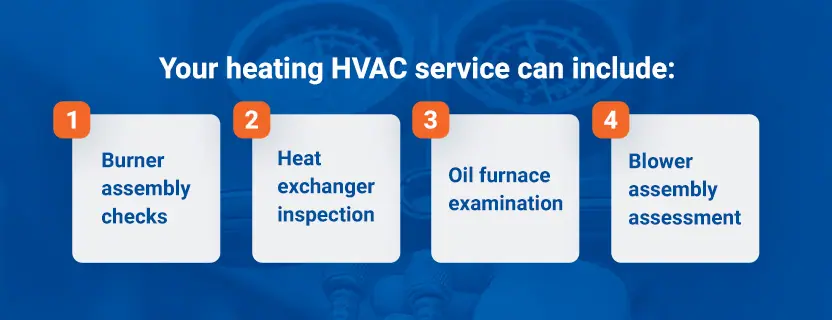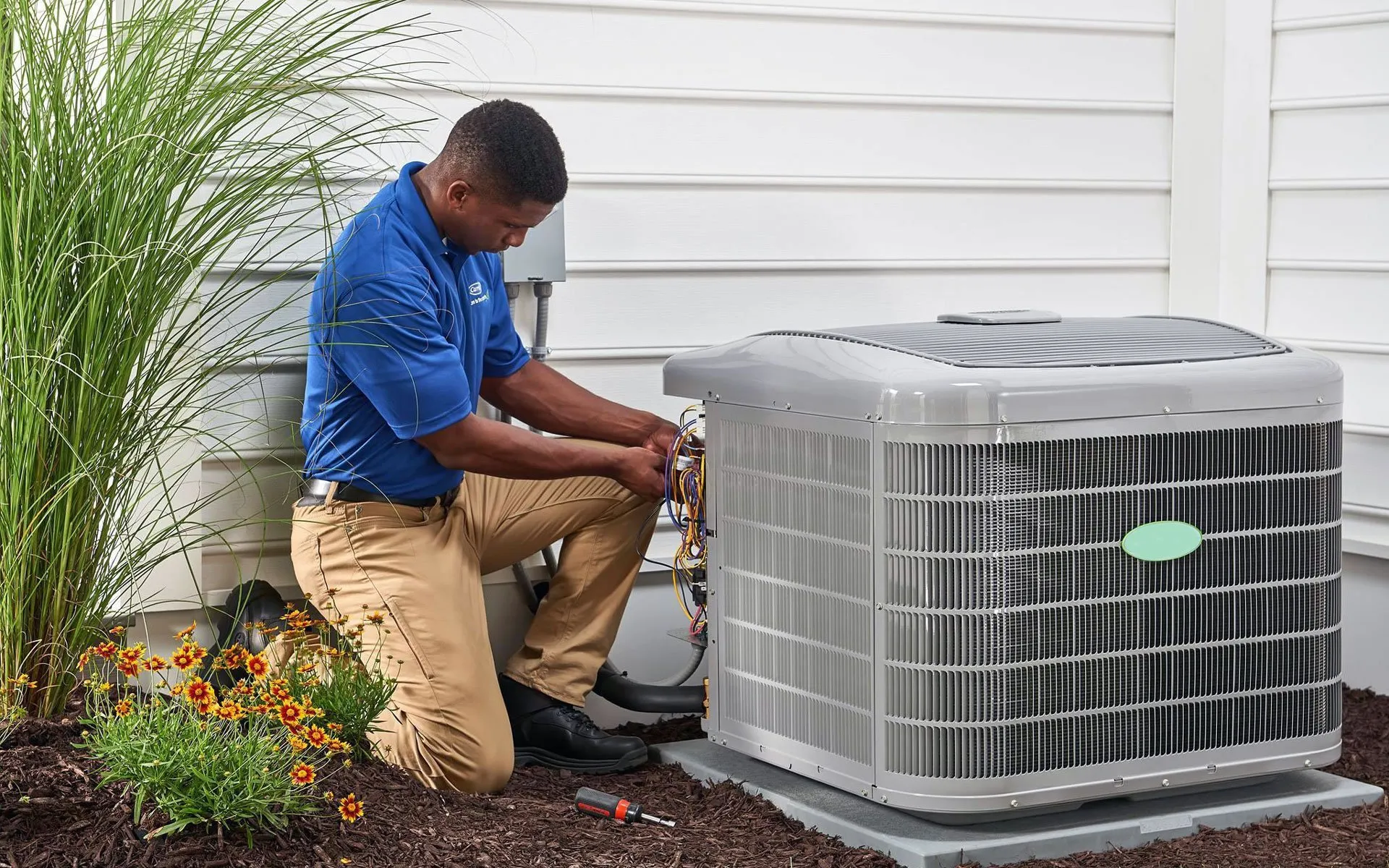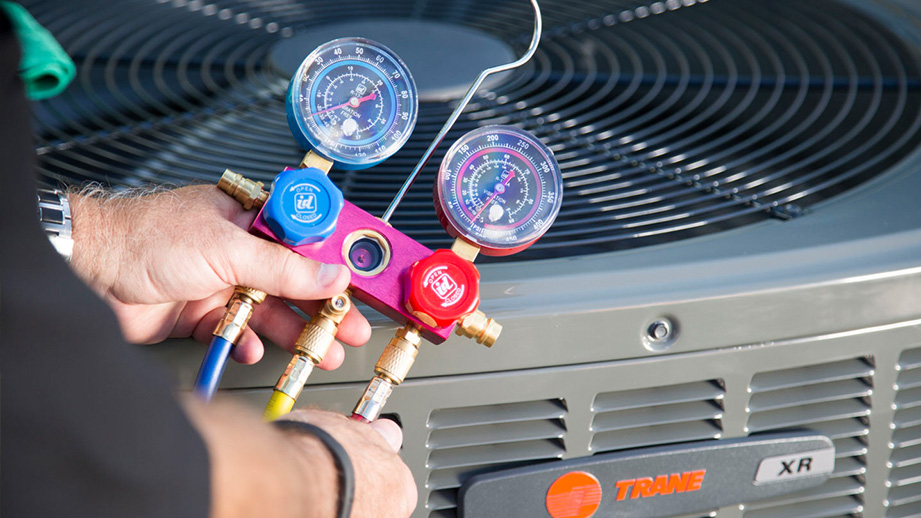Understanding HVAC: A Comprehensive Overview to Heating, Air Flow, and A/c Provider
In today's swiftly developing globe, an essential understanding of cooling and heating systems is no more a luxury however a need for making certain ideal interior settings. This overview supplies an extensive exploration of air flow, air, and home heating conditioning services, debunking the intricate interplay of elements that control comfort and effectiveness. As we browse through the details of selecting the ideal system and preserving it for peak efficiency, one starts to realize the profound influence these systems carry power consumption and sustainability. What typical risks could be threatening your heating and cooling system's possibility without your expertise?
Essentials of Heating And Cooling Systems
Heating, Ventilation, and Cooling (COOLING AND HEATING) systems are pivotal parts in modern-day design, constantly making sure ideal indoor air top quality and thermal convenience. These systems are important to preserving the health, performance, and wellness of residents in residential, business, and industrial setups. At their core, a/c systems are created to control the temperature level, moisture, and cleanliness of air, developing a comfy environment despite exterior climate condition.
The standard elements of a heating and cooling system consist of home heating units, air flow ducts, and a/c systems. The burner typically involves either a warmth or a heating system pump, which warms up air to be flowed throughout the structure. Ventilation, a critical aspect of the system, entails the exchange of outside and interior air, decreasing indoor pollutants and regulating wetness degrees. This procedure can be naturally or mechanically assisted in, often utilizing fans and ductwork to distribute air successfully.

Selecting the Right HVAC System
Selecting a cooling and heating system involves a cautious equilibrium of viability, performance, and expense to the specific needs of a structure. The option process starts with an assessment of the structure's dimension, style, and meant usage. Bigger frameworks may require even more robust systems, while property buildings could take advantage of smaller sized, a lot more energy-efficient designs. It is crucial to take into consideration the climate of the place, as this will affect the kind of system that ideal keeps comfy interior temperatures throughout the year.
Energy effectiveness rankings, such as SEER (Seasonal Power Performance Ratio) for ac unit and AFUE (Annual Fuel Use Performance) for furnaces, are essential aspects when examining possible systems. Greater scores normally show far better performance and reduced operating expense with time. In addition, possible purchasers must compare in advance costs with potential long-term financial savings to establish the very best monetary choice.
One more key consideration is the kind of system-- whether a central system, split system, or ductless mini-split is proper. Each offers distinct benefits and constraints, based on installation intricacy and room needs. Consultation with HVAC specialists is a good idea to make sure that the system selected straightens with both the building's specifications and the owners' convenience preferences.
Relevance of Routine Maintenance
As soon as the suitable HVAC system is picked and set up, maintaining its effectiveness and longevity comes to be a top priority. Regular maintenance is important for ensuring that the system runs at peak efficiency, lessening the risk of unforeseen breakdowns. Regular inspections and maintenance can identify prospective concerns before they rise into pricey repair work or substitutes, thus expanding central heating systems the lifespan of the devices.

Moreover, sticking to a maintenance routine can preserve the warranty insurance coverage, as numerous suppliers need evidence of regular servicing to recognize warranty cases. Engaging expert HVAC service technicians for routine maintenance makes certain that all components are analyzed accurately and changed as required. This proactive method not just safeguards the investment in the heating and cooling system yet also promotes a much healthier interior environment for residents, boosting overall health.
Enhancing Power Efficiency
To boost power efficiency in cooling and heating systems, it is vital to implement methods that decrease power consumption while maintaining ideal performance. One effective method is the combination of clever thermostats, which allow accurate control over temperature settings based on occupancy and time of day. These gadgets can discover patterns and readjust heating and cooling routines as necessary, lowering unneeded power usage.
An additional approach entails normal examination and cleaning of HVAC components, such as air filters, coils, and ductwork. Clean systems operate more efficiently, as dust and particles can block air flow and require the system to work harder, taking in more energy. Ensuring correct insulation and securing is additionally crucial, as it stops energy loss and minimizes the load on a/c systems.
In addition, updating to energy-efficient devices, such as variable-speed motors and high-efficiency compressors, can considerably cut power intake. These elements adjust their rate and outcome to match the specific home heating or cooling demand, preventing power waste.
Buying energy recuperation ventilation systems can also boost performance by exchanging heat in between outgoing and inbound air streams, lowering the demand for extra home heating or air conditioning. By adopting these actions, a/c systems can achieve superior power efficiency, bring about minimized operational expenses and environmental influence.
Troubleshooting Common Issues
When dealing with HVAC system breakdowns, a structured approach to repairing can efficiently recognize and fix common problems. The first step entails inspecting the thermostat setups to ensure they are correct and operating. Usually, inaccurate setups or dead batteries can create the system to behave unevenly. Next, analyze the air filters. Unclean or blocked filters restrict air flow, lowering system efficiency and may cause getting too hot or freezing.
Examine the circuit useful source breakers and merges; stumbled breakers or heat and air units blown integrates can stop system operations. Additionally, analyze the outside system for any type of blockages or particles that might prevent performance. Regular maintenance of these components can prevent many common problems.
Listen for unusual sounds, which may indicate mechanical issues such as worn-out belts or electric motor troubles. Unexplained rises in power costs can likewise indicate underlying ineffectiveness or leaks in ductwork. Guarantee that all vents are open and unblocked to facilitate optimum air movement.

Expert treatment becomes essential if these steps do not resolve the concern, particularly for complicated troubles like refrigerant leakages or electric faults. Normal evaluations and upkeep by certified professionals can preemptively address prospective concerns, guaranteeing the cooling and heating system operates effectively and accurately.

Conclusion
In verdict, a complete understanding of cooling and heating systems is vital for making sure optimal interior comfort and air quality. By picking the proper system based on details building needs, the effectiveness and sustainability of home heating, air, and air flow conditioning services can be maximized. Normal maintenance is essential for keeping system performance and durability, while energy effectiveness can be significantly improved through notified practices. Attending to usual problems via effective fixing further guarantees the reliable operation of cooling and heating systems, benefiting both home owners and companies.
As we navigate through the complexities of choosing the ideal system and keeping it for peak efficiency, one begins to recognize the extensive influence these systems have on power intake and sustainability.Home Heating, Air Flow, and Air Conditioning (COOLING AND HEATING) systems are pivotal components in modern architecture, regularly guaranteeing ideal indoor air quality and thermal comfort (air conditioning installation Brownwood TX).An additional key factor to consider is the kind of system-- whether a central system, split system, or ductless mini-split is proper. Clean systems run extra successfully, as dirt and debris can block air flow and force the system to work harder, eating even more energy.In verdict, a detailed understanding of Cooling and heating systems is vital for making sure optimal interior convenience and air quality